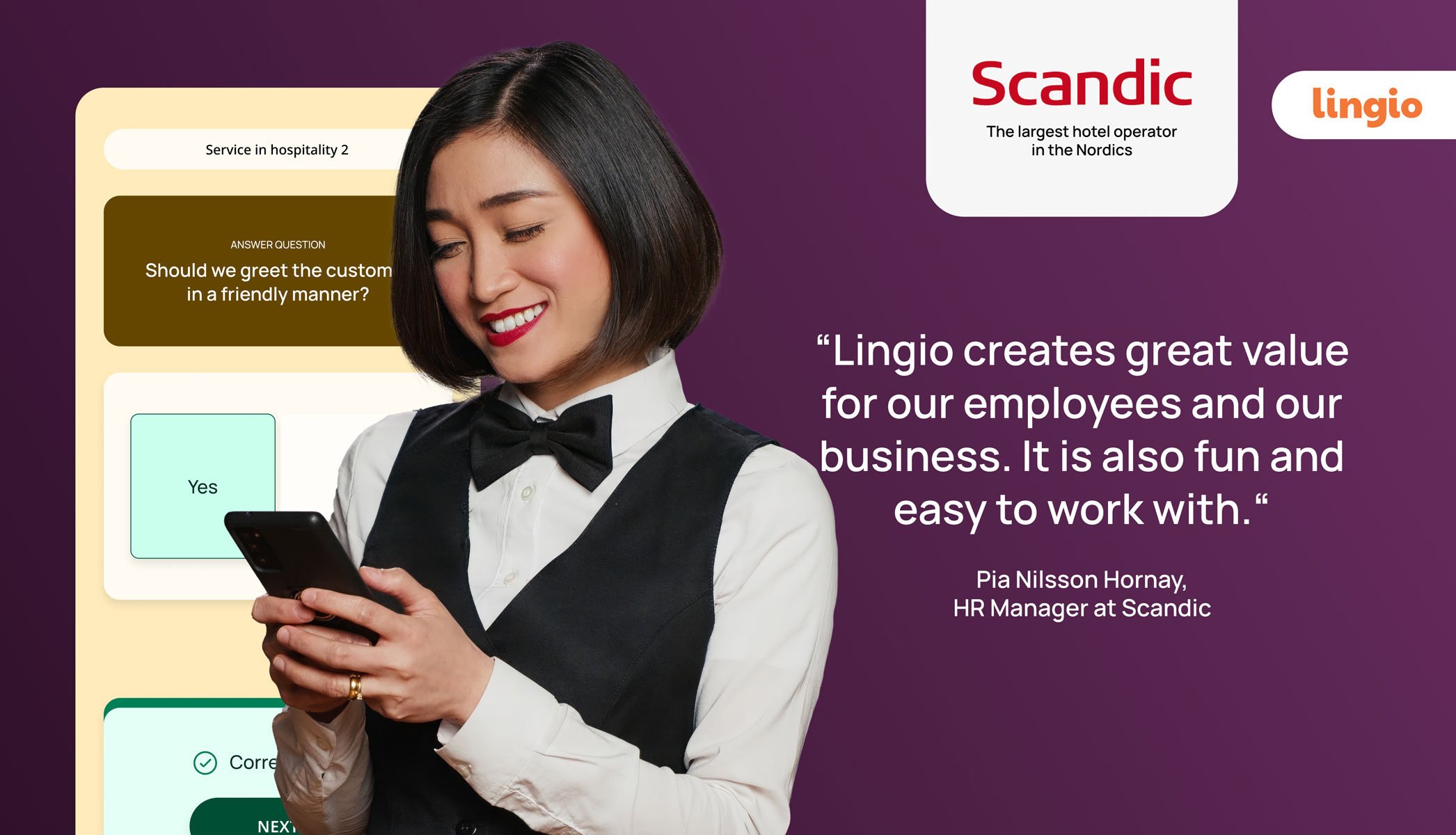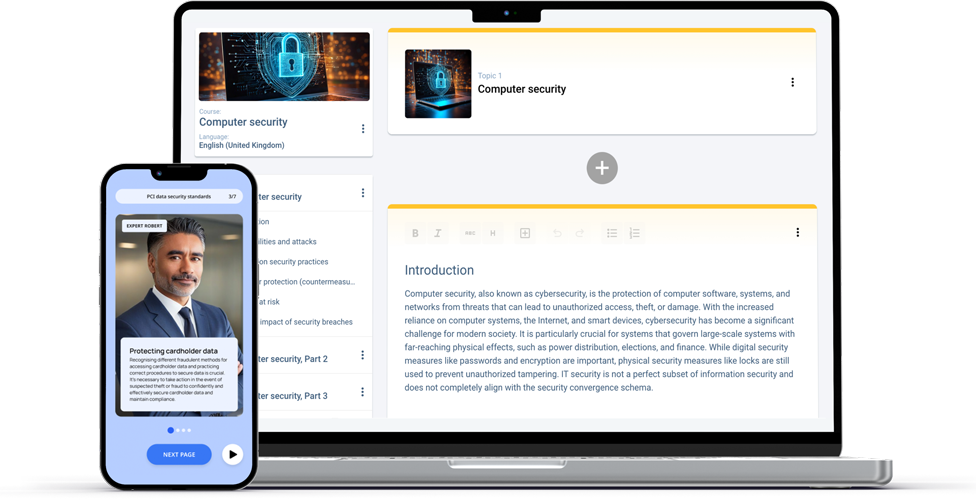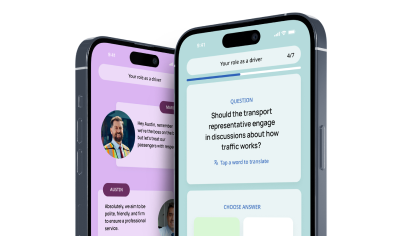Soft skills in the hospitality industry
Now that we’ve tackled the hard skills let’s flip the coin and dive into the soft skills. These enable the magical touches that turn a simple stay into a memorable experience. Soft skills help staff build genuine connections with guests, navigate tricky situations with grace, and create a warm, inviting atmosphere that guests will want to return to again and again.
9. Communication skills
Effective communication skills are the cornerstone of excellent hospitality service. Clear and efficient communication can resolve issues before they escalate, ensure that guest needs are met promptly, and create a welcoming environment.
Key communication skills in the hospitality industry include:
- Verbal communication: Clearly and confidently conveying information to guests and colleagues, ensuring that instructions and details are understood and acted upon.
- Non-verbal communication: Using body language, eye contact, and facial expressions to reinforce messages, show empathy, and make guests feel valued and understood.
- Written communication: Crafting clear and concise emails, messages, and notes to communicate effectively with guests and team members, ensuring all written information is easy to understand and error-free.
- Multilingual abilities: Communicating with guests in their native language to provide better service and make them feel more comfortable, which can be a significant advantage in a diverse industry like hospitality.
10. Interpersonal skills
Effective interpersonal skills help staff handle challenging situations, personalise guest interactions, and maintain a positive atmosphere.
Key interpersonal skills in the hospitality industry include:
- Adaptability: Adjusting interactions to suit different guest personalities and cultural backgrounds, ensuring every guest feels understood and respected.
- Positive attitude: Maintaining an upbeat and friendly demeanour at all times, which can greatly influence the mood and satisfaction of guests.
11. Leadership and management skills
Given hospitality's fast-paced nature, adept leaders are needed to handle challenges such as high turnover rates, maintaining consistent service quality, and managing a diverse team. Leadership skills in the hospitality industry address critical issues such as reducing employee turnover, maintaining service standards, and fostering a positive workplace culture.
Key competencies under leadership and management skills include:
- Team leadership: Inspiring and motivating staff, setting clear goals, and providing direction to achieve common objectives.
- Decision-making: Making informed and timely decisions that positively impact operations and guest experiences.
- Performance management: Monitoring and evaluating staff performance, providing feedback, and implementing training programs to address service gaps.
12. Teamwork and collaboration
Effective teamwork ensures that all departments work harmoniously, addressing issues quickly and providing consistent service. Employees who feel connected at work are likelier to stay in their jobs, which is crucial in an industry with high turnover rates.
Key competencies under teamwork and collaboration include:
- Flexibility: Adapting to changing situations and helping out in different roles as needed to maintain smooth operations.
- Mutual respect: Valuing each team member’s contributions and fostering a supportive work environment.
- Coordination: Working together to manage tasks and responsibilities efficiently, such as coordinating between housekeeping and the front desk to ensure rooms are ready for guests.
13. Problem solving skills
Effective problem-solving skills in the hospitality industry ensure that guest complaints are resolved swiftly and operational challenges are managed efficiently. This skill set is vital for maintaining high guest satisfaction and operational excellence.
Key competencies under problem-solving skills include:
- Critical thinking: Analysing situations logically to understand the root cause of issues and develop effective solutions.
- Creativity: Coming up with innovative and resourceful solutions to unexpected problems, such as handling a sudden shortage of supplies.
- Proactive approach: Anticipating potential issues and taking preventive measures to avoid them, such as regular maintenance checks to prevent equipment failures.
14. Time management
Effective time management helps address common pain points such as long wait times, missed service deadlines, and overworked staff. By prioritising tasks and managing time effectively, hospitality professionals can enhance productivity, reduce stress, and maintain high service standards.
Key competencies under time management include:
- Prioritisation: Focusing on critical tasks to ensure essential duties are completed first, like prioritising room cleanings based on guest check-in times.
- Scheduling: Creating and sticking to schedules that optimise time and resources, such as setting specific times for team meetings to avoid peak service hours.
- Time tracking: Monitoring how time is spent on various tasks to identify areas for improvement and ensure effective resource use.
15. Conflict resolution
Effectively resolving conflicts among staff or with guests ensures that issues are addressed promptly and professionally, minimising disruption and enhancing guest satisfaction. Conflict resolution is crucial for maintaining positive relationships and a smooth operation, directly impacting guest experience and staff morale.
Key competencies under conflict resolution include:
- Negotiation skills: Finding a middle ground that satisfies all parties involved, such as offering a complimentary service to a dissatisfied guest while ensuring that the hotel's policies are upheld.
- Emotional intelligence: Recognising and managing your emotions and those of others to keep the situation under control and avoid escalation.
- Mediation: Acting as an impartial mediator to help conflicting parties reach a mutually acceptable solution, ensuring both sides feel heard and respected.
16. Cultural awareness and sensitivity
Understanding and respecting cultural differences can significantly enhance guest experiences and promote inclusivity. By being culturally aware, hospitality professionals can avoid misunderstandings, make guests feel more welcome, and provide tailored services that meet the needs of a diverse clientele.
Key competencies under cultural awareness and sensitivity include:
- Cultural knowledge: Understanding the customs, traditions, and preferences of different cultures to cater to diverse guest needs. For example, knowing dietary restrictions or holiday practices can help provide personalised services.
- Inclusive service design: Creating services and amenities that cater to a wide range of cultural preferences, such as offering multilingual menus or culturally appropriate entertainment options.
- Customising greetings and interactions: Adapting greetings, forms of address, and interaction styles to align with cultural norms, making guests feel respected and valued.
17. Networking skills
Effective networking helps hospitality professionals connect with industry peers, share knowledge, and discover new trends and best practices. This skill set is precious for creating partnerships, finding mentors, and identifying new business opportunities to enhance a hotel's offerings and reputation.
Key competencies under networking skills include:
- Building relationships: Establishing and nurturing professional connections with colleagues, industry peers, and guests to create a robust network of contacts.
- Social media engagement: Using platforms like LinkedIn to connect with industry professionals, join relevant groups, and participate in discussions to expand your network.
- Active participation: Attending industry events, conferences, and seminars to meet new people, stay updated on industry trends, and exchange ideas.
18. Stress management
Hospitality professionals often face long hours, demanding guests, and fast-paced workdays. Effective stress management techniques help staff stay focused, calm, and efficient, reducing burnout and turnover rates.
Key competencies under stress management include:
- Mindfulness and relaxation techniques: Practicing mindfulness, deep breathing exercises, or meditation to stay calm and focused during hectic situations.
- Physical well-being: Maintaining a healthy lifestyle through regular exercise, adequate sleep, and proper nutrition to enhance resilience to stress.
- Seeking professional help: Accessing mental health resources or counselling services when needed to manage stress effectively.








